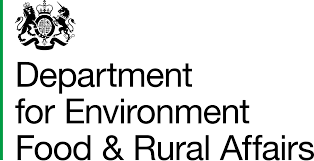HISTORIC PRESS RELEASE : New Drive to Boost Small and Medium Enterprises’ (SMEs) Access to Government Tenders [June 2002]
The press release issued by HM Treasury on 14 June 2002.
A new government initiative designed to encourage public sector buyers to consider the potential benefits of tendering with smaller suppliers was announced today by Paul Boateng, Chief Secretary to the Treasury and Nigel Griffiths, DTI’s Minister for Small Business.
The publication ‘Smaller Supplier… Better Value?’ is part of the ‘Think Small First’ drive which urges all parts of government to think about their role in supporting the enterprise society.
Published jointly by the Office of Government Commerce (OGC) and the Small Business Service (SBS), the booklet seeks to raise awareness of the greater competition and better value small and medium-sized enterprises (SMEs) can bring to the marketplace.
Paul Boateng said:
“Increasing awareness of the potential benefits of doing business with SMEs helps to increase their share of government business. The increased competition generated should improve value for money in public sector purchasing.”
Nigel Griffiths added:
“My priority as Small Business Minister is to increase access to tendering. Small businesses have so much value to offer, through greater innovation, increased responsiveness, greater flexibility, better quality of service and specialist skills.
“We’ve already published a guide for small businesses on how to approach tenders and this companion will help square the circle by urging public sector buyers to look at the potential benefits of offering tenders to small business suppliers.”
Peter Gershon, Chief Executive of the Office of Government Commerce said:
“Smaller suppliers can often offer better value for money than larger companies. Public sector purchasers always try to obtain value for money. I want them to ask themselves regularly whether a smaller supplier may offer the best solution.”
The booklet refers to the challenges that SMEs often face when bidding for government business, such as finding it difficult to learn about opportunities, believing that bidding processes are complex and costly, or because they think they are too small to cope with the capacity of many of the advertised contracts.
Along with each of these challenges, the booklet puts forward best-practice solutions as to what departments could do to help, such as publicising opportunities through Business Links, keeping tender documentation jargon-free and dividing contracts into lots where appropriate.



